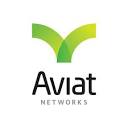Microwave networking vendor Aviat Networks said it has completed LTE evaluation at the Public Safety Communications Research program’s public safety test-bed network in Boulder, Colo., where it is also providing microwave backhaul.
The PSCR is housed at the U.S. Department of Commerce’s lab and provides a 700 MHz network for testing interoperability of vendor equipment in Band 14, which is reserved for use by the First Responder Network Authority (FirstNet). Aviat says it is the first and only vendor to deploy microwave radios at PSCR for LTE interoperability testing in licensed spectrum.
“Public Safety Communications Research lab serves as a gatekeeper for interoperability testing of LTE products for the U.S. public safety broadband market,” says Frank Ohrtman, analyst and author of a recent Mind Commerce on public safety broadband. “Ultimately, it’s critical that public safety networks that want to join FirstNet purchase equipment that has been thoroughly checked out in real-world conditions, such as those that exist in the PSCR field lab.”
According to Aviat, PSCR needed high-bandwidth microwave backhaul radios to test LTE base stations. The company says it provided “more than ample capacity” for PSCR’s installation. Its Eclipse radio is designed for mission-critical LTE installations in terms of architecture, security and reliability.
“Aviat has worked with public safety network operators in North America for more than 50 years,” said Tony Ljubicich, VP of North America sales and services for Aviat, in a statement. “The linchpin for those operators has always been the robust, wide bandwidth available in Aviat’s portfolio of high reliability, high-capacity licensed microwave radios. Similarly, the Eclipse radio platform provides this to help enable the PSCR demonstration network. As a global leader in wireless infrastructure solutions for telecom networks, we welcome the challenge to prove the interoperability of Eclipse radios with other vital emergency communications equipment.”
For more information on PSCR, its lab, and FirstNet, read RCR Wireless News’ special report on public safety wireless.

